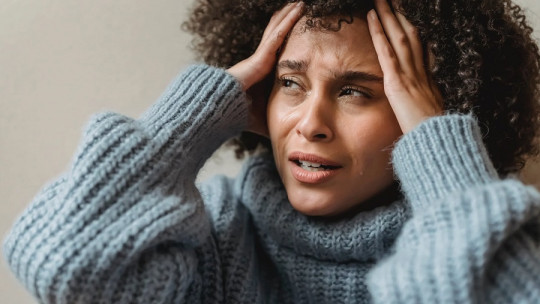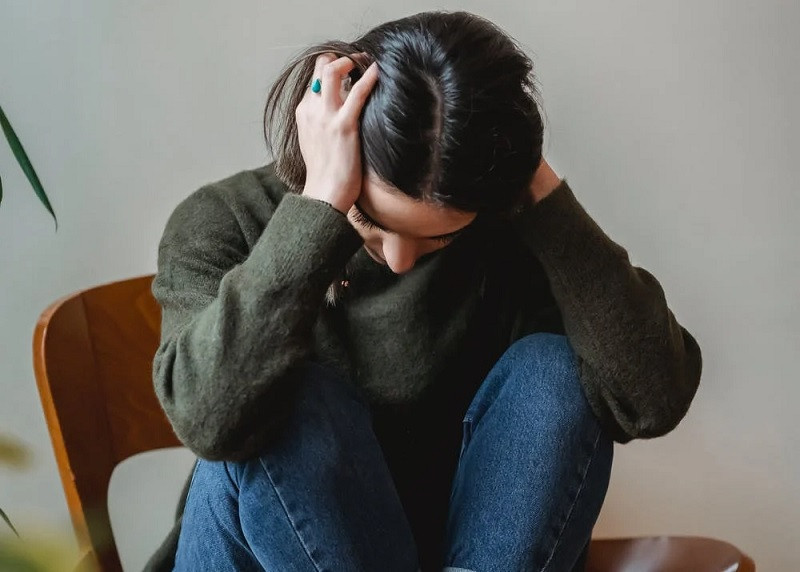
We have all felt anxiety at some point in our lives; At a physiological level, it presents as accelerated heart rate, sweating, agitation, nausea, sleeping problems, among other symptoms.
But… What is it there for? What is the function it performs in our lives?
The reason for anxiety
It is easier to understand how anxiety works if we understand emotions as sensors that help us understand the environment, react appropriately and function successfully. Thus, unpleasant emotions will invite us to change path get away from what causes them or look for the error to learn new things.
For their part, pleasant emotions show us which path to follow and what things cause us pleasure/joy, so we can repeat them in the future; They help us learn the behaviors, thoughts and ways of life that do work for us. As we can see with this brief description of emotions, They are all important for our optimal development including anxiety.

Anxiety is an emotion as valid and useful as any of the other emotions, it acts as a defensive mechanism. Warns us of danger alerting our body, mobilizing us to respond to a danger, allowing us to adapt to the situation thanks to the fact that we have all our senses focused on it and increasing our performance in those circumstances.
This anxiety is what we could call adaptive since it makes it easier for us to adapt to the environment and bring out our full potential in certain situations of stress or danger.
The problem appears when that emotion appears without the danger itself being present, perceiving situations that are innocuous in principle as highly dangerous. This occurs when the mechanism by which it is activated is altered and begins to activate disproportionately for the situation, on occasions that do not represent a real danger for the person and even paralyze us, preventing us from being decisive and effective.
Possible causes
There are many factors that can predispose us to this mechanism becoming deregulated. Among them are the following.
1. Biological factors
These They are more related to the functioning of our nervous system and the production of certain neurotransmitters that interact in the activation of this alert system.
2. Factors resulting from learning
At birth we are a blank book and a large part of our behaviors, ways of reacting, understanding the world and our own emotions, and even thinking, have a lot to do with what we have learned in our environment. That’s why it makes sense that, if our family tends to act anxiously in any situation, we can develop the same vision of life and way of reacting to different stimuli.
3. Environmental factors
If I am in an environment where any conversation, behavior or situation can lead to conflict, and it is normal for the system that regulates anxiety to end up altered.
In these cases, if we have remained for a long time in an environment that we perceive as dangerous whether at the level of physical integrity such as a war or mental integrity such as a toxic relationship, it is common for the chemistry of our brain to be altered and, in addition, for it to retain a large number of anxious responses that we have learned to be useful after those events. experiences, increasing the number of times that we will perceive a reality as dangerous and will act from this vision.
To do?
There are several ways to reduce anxiety when it appears, I invite you to practice some of them if you need to from home. Here are some examples that you can put into practice:
However, In the long term, if you suffer from anxiety in your daily life, the most effective thing is to go to therapy where in addition to learning techniques that make it easier for you to overcome those moments in which anxiety is not adaptive, you will be able to delve into the origin of that anxiety (at what point in my life did I start acting like this, in what situations do I feel that danger excessive without being adaptive, what situations led me to perceive them in this way, etc.) learning new ways of reacting to those situations that are much more adaptive and that allow us to enjoy our daily lives.
To achieve this, you can work through therapy to gradually understand each other better and ensure that this change is permanent over time.








